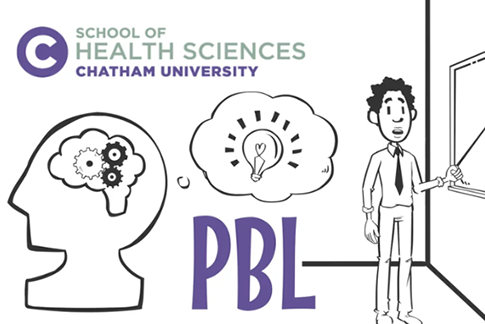An Ability to Apply Information to Real-World Situations
Research indicates that PBL embodies a learning approach that effectively helps students to develop scientific thinking about patients' problems and to acquire both basic science and clinical information in a manner that ensures retention and transfer [of learning] to the real-life task of the clinician. (Barrows) Recent studies indicate that graduates of problem-based health care educational programs perform well (most studies indicate better than students from more traditional educational programs) on board exams and exhibit secure clinical learning and reasoning skills to the betterment of their patients.
Problem-Solving Skills
Since the acquisition of new material revolves around a patient case, students constantly learn and apply information in the context of solving a patient problem. For example, students might be required to answer the following questions posed by the tutor: based on the pathophysiology of his disease process, what precautions would be important when treating this patient? How would you handle the patient's emotional affect in order to accomplish your treatment? How might the patient's medications influence the outcome of today’s intervention? What tests and measures might be appropriate for the patient given their current status?
Research Skills
As Chatham physician assistant students are learning how to ask questions through the PBL process, they also learn to research the answers. Our students become quite skillful at database searching, critiquing journal articles, and synthesizing information from a variety of sources.
Communication Skills
Since group members are dependent on each other for enriching discussion and subsequent learning, each student must participate in PBL sessions, whether by volunteering information, asking questions, seeking clarification, confirming the thoughts of a peer, or relating information to the patient case. Inherent in the PBL process, Chatham students learn how to function as individual members of a team, conferring for the greater good (learning the material/treating the patient).
Students also have an opportunity to evaluate the participation skills of their classmates (preparation, clinical reasoning, quality of learning resources, team skills, respective listening) and themselves, in written and oral formats. This teaches critical reflection and the skills of providing/receiving constructive criticism.

